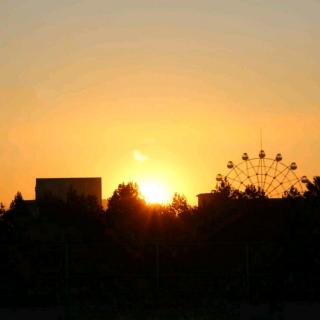
介绍:
This is Scientific American - 60-Second Science. I'm Steve Mirsky.
Got a minute?
"So we're inside, we're in fake lighting, we're not spending as much time outside in the context in which our visual system evolved."
Amanda Melin, assistant professor of anthropology & archaeology and of medical genetics at the University of Calgary. And all that sitting inside in dim light staring at screens has led to an epidemic of myopia - nearsightedness - among young people.
"The myopia epidemic is particularly strong in Asia and in urban Asian environments, where it is increasing to be upwards of 90 percent of teenagers are myopes."
Melin spoke February 20th at a press briefing at the annual meeting of the American Association for the Advancement of Science in Boston.
"So to be sure there's a genetic component, my father had glasses, I have glasses. But we're increasingly realizing that the environments in which we're spending our time are playing a major role."
"And so a cohort study where some school age children were given 40 minutes or more time outside, those children had a 23 to 50 percent less likely chance of developing myopia than students at schools who were not given that same amount of outdoor exposure. And it looks to be dosage dependent, so the longer time you spend outside the less chance you have of developing myopia."
"So the exact mechanisms are not really known, so we really need a lot more research into this. But another major factor that's being implicated is near-work activities, so spending our time looking at computers, into microscopes, these things. And then as soon as we leave our work, what are we doing, we're on our mobile devices, that's also a very close activity."
"When we're engaged in near-focus tasks our eyes are actually working really hard, because the muscles have to accommodate the lens to focus that close. When we look off into a distance that's when our eyes are relaxing, so there could be something with that as well."
"When you're outside, the ambient light is...orders of magnitude brighter outside in outdoor lighting environments, so that probably has a very important role... we need to think about perhaps policies in place to get kids and young adults outside a bit more."
Thanks for the minute for Scientific American - 60-Second Science. I'm Steve Mirsky.
VOCABULARY
1.fake adj. made to look like sth. else 冒充的;伪造的 [同义词] imitation 例如:
a jacket in fake fur人造毛皮短上衣
Don't go out in the sun - get a fake tan from a bottle. 别顶着太阳出去了,擦点棕褐色油装作太阳晒的就行了。
2.evolve v. evolve (sth.) (from sth.) (into sth.) to develop gradually, especially from a simple to a more complicated form; to develop sth. in this way (使)逐渐形成,逐步发展,逐渐演变。例如:
The idea evolved from a drawing I discovered in the attic. 这种想法是从我在阁楼里发现的一幅画得到启发的。
The company has evolved into a major chemical manufacturer. 这家公司已逐步发展成一个主要的化工厂。
3.anthropology n. [不可数名词] the study of the human race, especially of its origins, development, customs and beliefs 人类学
4.archaeology n. [不可数名词] the study of cultures of the past, and of periods of history by examining the remains of buildings and objects found in the ground 考古学
5.genetics n. [不可数名词] the scientific study of the ways in which different characteristics are passed from each generation of living things to the next 遗传学
6.epidemic n. a large number of cases of a particular disease happening at the same time in a particular community 流行病。例如:
the outbreak of a flu epidemic流感的爆发
an epidemic of measles麻疹的流行
7.myopia n. (technical 术语) the inability to see things clearly when they are far away 近视
[同义词] short sight, short-sightedness
8.cohort n. (technical 术语) a group of people who share a common feature or aspect of behaviour (有共同特点或举止类同的)一群人,一批人。例如:the 1999 birth cohort (= all those born in 1999) 1999年出生的同龄人口
9.mechanism n. a system of parts in a living thing that together perform a particular function (生物体内的)机制,构造。例如:
the balance mechanism in the ears耳内的平衡机制
Pain acts as a natural defence mechanism. 疼痛算是一种自然防护机制的作用。
10.ambient adj. [只用于名词前] (technical 术语) relating to the surrounding area; on all sides 周围环境的;周围的。例如:ambient temperature/light/conditions周围的温度 / 光线 / 环境
11.magnitude n. [不可数名词] (formal) the great size or importance of sth.; the degree to which sth. is large or important 巨大;重大;重要性。例如:
We did not realize the magnitude of the problem. 我们没有意识到这个问题的重要性。
a discovery of the first magnitude一项极重要的发现
大家还在听

